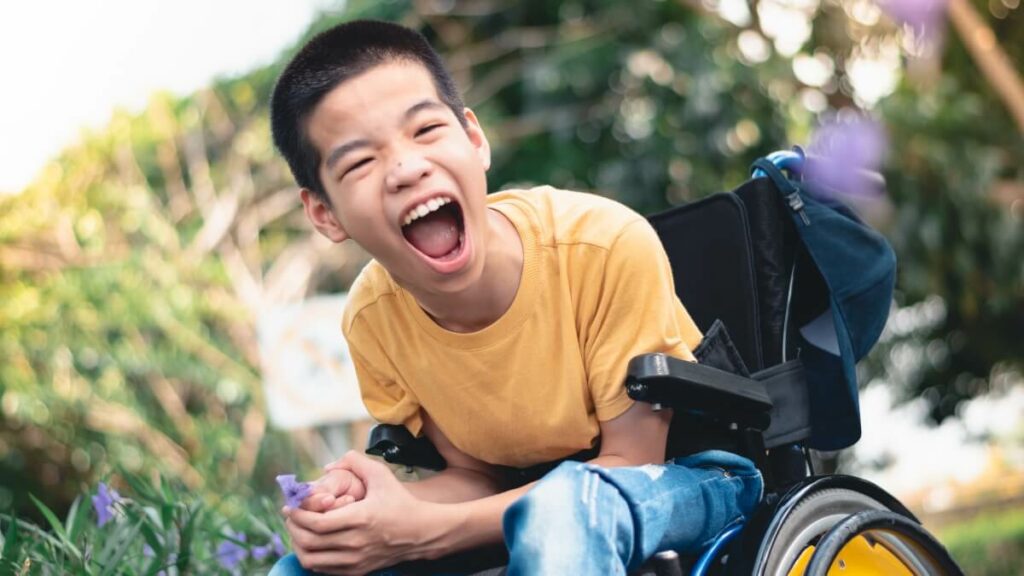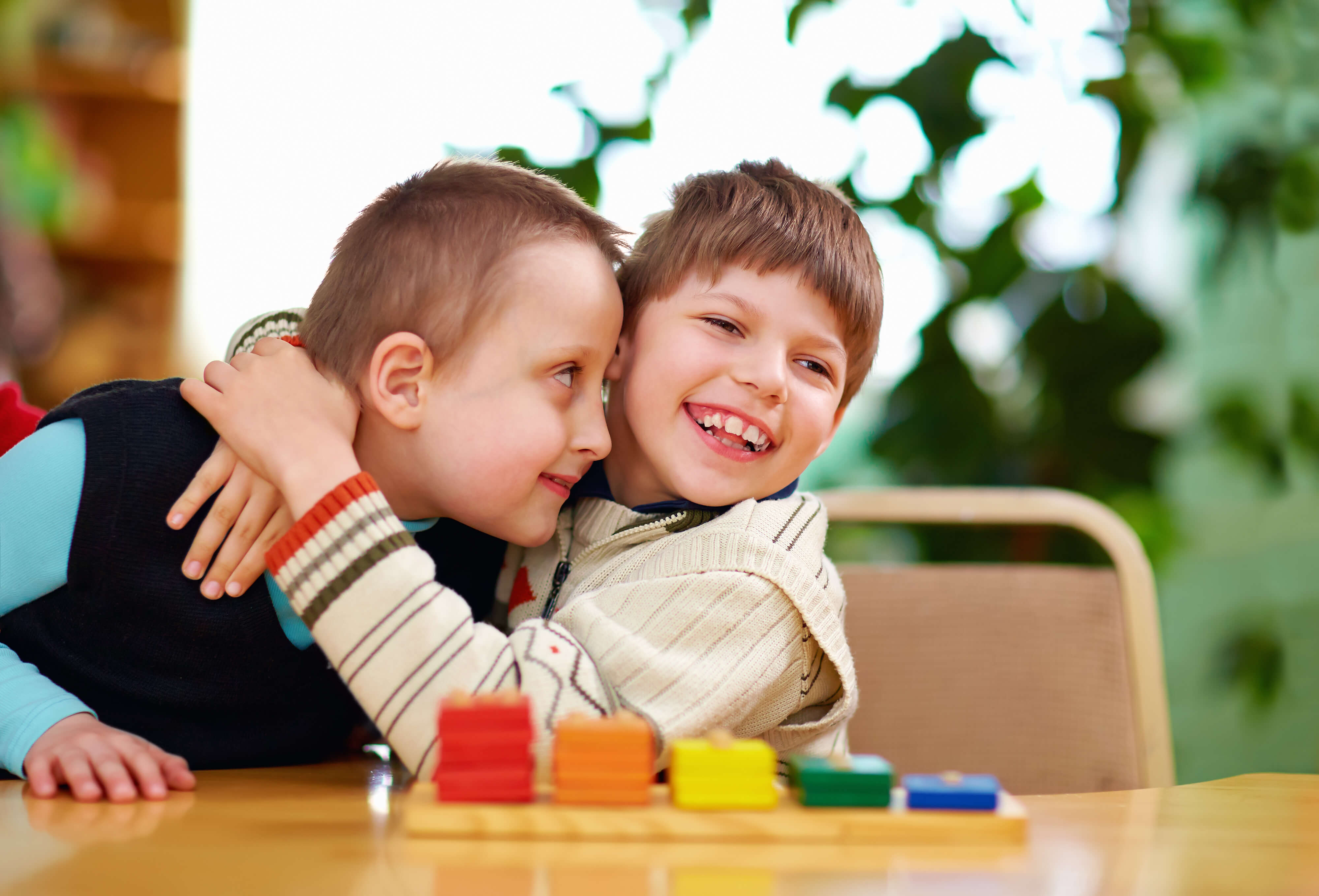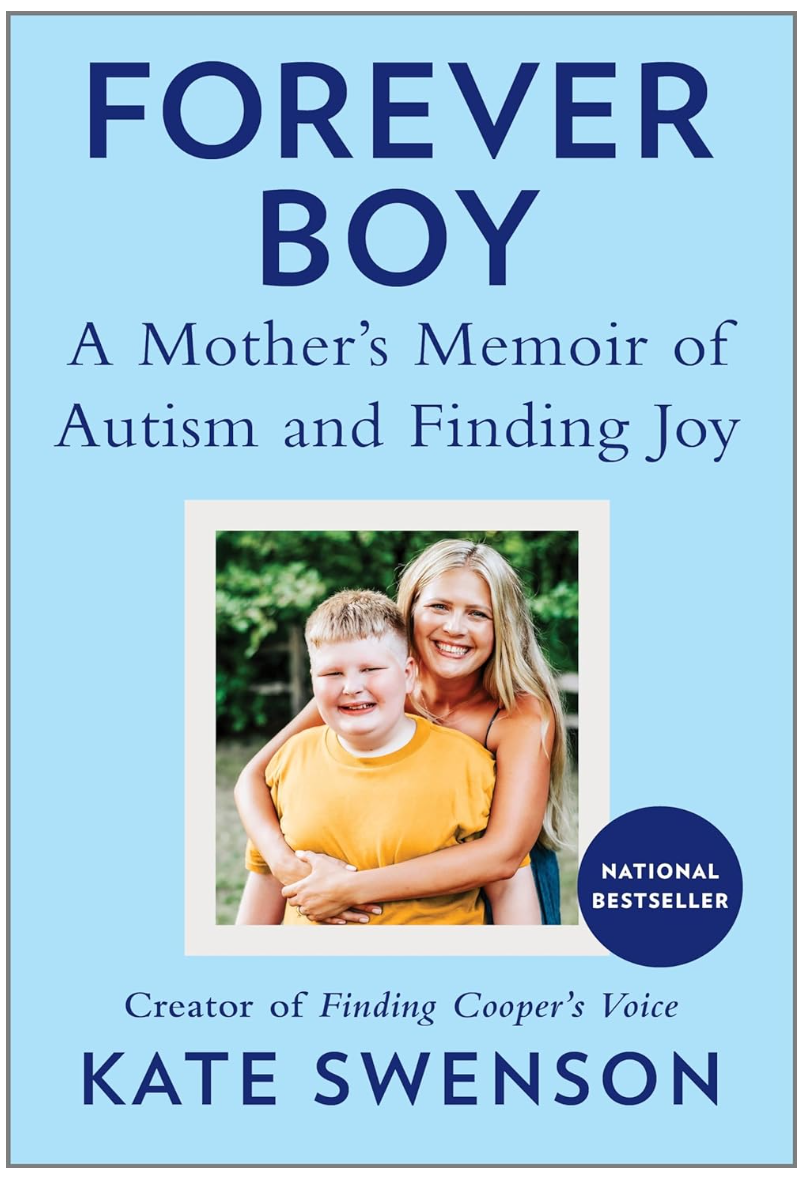How To Use The Right Words When Talking About Those With Disabilities

It was freshman year of high school. I was sitting in English class and I overheard someone calling their friend retarded.
Yes, almost 20 years later, I still remember every detail of this day, down to who the person was and what he was wearing.
“Hey find a different word!” I yelled at my classmate.
The class got quiet. Waiting to see what would happen next. As a high school student, my approach wasn’t the best in advocating for those with disabilities.
“Why because your brother is retarded?” the freshman boy responded as he puffed up his chest.
My heart skipped a beat. He didn’t know my brother or about his disability. He didn’t know the impact of this word.
To me, the word “retarded” highlighted more of what my brother couldn’t do and indicated something was wrong with him. This word didn’t showcase him as what he could be, what he was, and everything amazing about him.
I thought to myself at that moment, doesn’t this freshman boy know I hit someone in elementary school for saying this same word? But I was a freshman and fighting wasn’t the answer.
So what did I do? I walked out of class.
At that moment, I was embarrassed. I felt like a broken advocate. I felt that no one could see my brother like I did. And all because of one word!
Times have changed, therefore our language should change accordingly.
Words or phrases that are definitely off limits no matter who you are: retarded, mentally retarded, slow, mentally challenged, mentally disabled, mentally handicapped, crippled, riding the short bus.
Words I use interchangeably and recommend replace the previous list: intellectual disability, differently abled, different abilities. But, I completely understand that some of these may not always be best.
More than just names or labels, we need to completely overhaul how we speak to those with disabilities.
First-person language has always been important to me both in a professional and personal setting.

What is first-person language in regard to those with disabilities? This refers to placing the person before their disability when speaking. Here are some examples:
The boy with autism, instead of the autistic boy.
The kid who has Down Syndrome, instead of the Downs kid.
The girl in a wheelchair or who uses a wheelchair, instead of the crippled girl.
The person who is deaf, not the deaf person.
We each have a responsibility in making the effort to achieve an inclusive community.
Whether you are a parent of a differently abled child, a teacher with a student who has an intellectual disability, or a community member who hears the “R word” and knows that language isn’t appropriate.
Parents, I know that how others talk about our children is extremely important. But when someone uses the wrong term for your child, choose to educate in a positive way instead of making them feel ashamed for not knowing the right language to use.
If the language is used in hatred or a negative connotation, absolutely bring out your “mama bear” defense. But, when someone is using the wrong language while trying to help, ask questions, or engage, take a deep breath and calmly say, “I really like it when people use ‘differently abled’ when talking about my child and others with disabilities.”
And leave it at that. If you were to try to go into more detail, the person might avoid addressing individuals with disabilities in the future out of fear of saying the wrong thing.
Your correction can change them, but your approach can empower them to be more aware in the future.
Teachers, we should be providing our students with first-person language early. I still hear kids say, “I played with the ‘crippled boy’ in class today,” or “I have an ‘autistic girl’ in my class.”
Have a soft skills lesson on how labels shouldn’t define a person. Teach them how to describe those who are different from us, and only use their disability when it’s appropriate to the conversation.
For example, I have many conversations with my children about their uncle, classmates, Chris who lives with us, and about friends at Puzzle Pieces.
I explain they have a disability and what that means is that they learn a little different from them. I tell them they respond to things a little different from them.
However, I remind them they are people who love and care about being included in all the things they do, and it is our responsibility to help figure out how too. My kids have usually responded with, “Why are they different, what happened?”
I just remind them that God makes all of us a little different. Some of us might be really good at something, while the other person isn’t.
Then I go in detail of the “replacement” of what they can do. I quickly replace their thoughts of why their legs don’t work and they are in a wheelchair, to their form of walking is using a wheelchair designed for them.
I don’t let them focus on why they can’t speak, and expose them to ways they can talk with others who speak differently than us. We make it into a cool game of coming up with all the ways we could do it differently, which in return teaches them how to interact and recognize others’ abilities.
Community members, be aware of the terminology you used for those with disabilities. There are many people in your community who have a family member with a disability, and each of them have different insights regarding appropriate language to use when we talk about those with disabilities.
Don’t take it personally when someone strongly corrects your word choice. More than likely, they are often defensive as they protect their loved one. It’s not just about you, it’s about them trying to change the world’s views and mindsets through you.
Listen, learn from it, and then adjust the next time. If your intentions are right when talking, that is what matters.

Written by, Amanda Owen
Amanda Owen is a daughter, sister, mother, leader, teacher, advocate, and most recent to her title…a blogger. She became a Special Education Teacher at the age of 20 years old, only to leave her career six years later to become the founder of a non-profit organization developed to support those with disabilities, which has grown to supporting over 150 individuals with disabilities. Her inspiration to change a world full of opportunities and happiness for those with disabilities is driven from the love for her brother, Nick, who has a disability. You can follow her blog Pieces of Me as well as follow her on Facebook.
Interested in writing for Finding Cooper’s Voice? LEARN MORE
Finding Cooper’s Voice is a safe, humorous, caring and honest place where you can celebrate the unique challenges of parenting a special needs child. Because you’re never alone in the struggles you face. And once you find your people, your allies, your village….all the challenges and struggles will seem just a little bit easier. Welcome to our journey. You can also follow us on Facebook, subscribe for exclusive videos, and subscribe to our newsletter.

